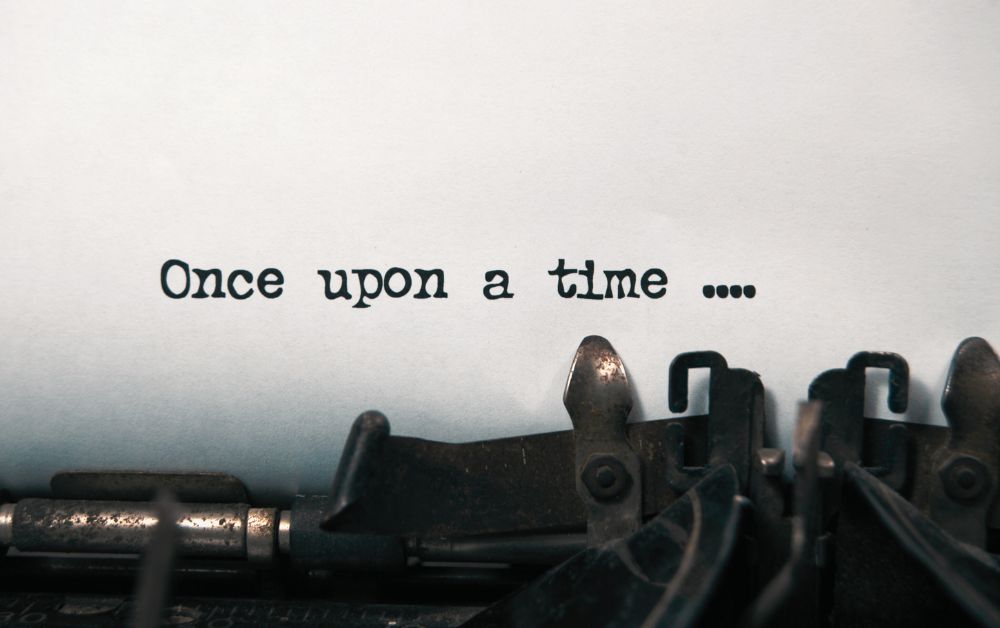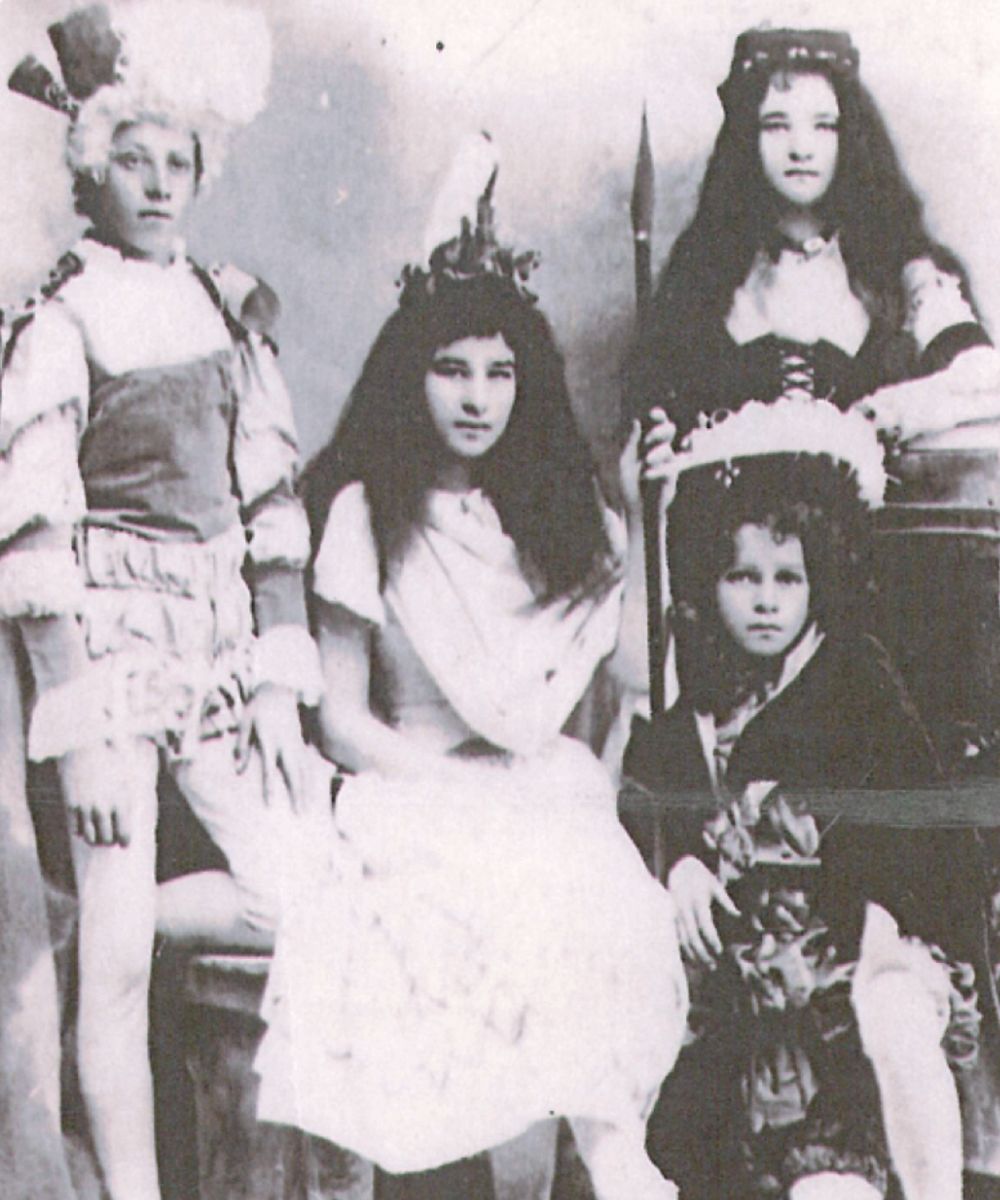The girl seated at the centre of this remarkable photograph captures a moment in time, frozen in the soft sepia tones of the early 20th century. It was an era when photography was a serious affair, and children were dressed with deliberate care and symbolism.
There’s a theatrical quality to the scene: the ornate costumes, the stylised props, the formality of the studio setting. But it’s the object she’s holding that always makes me pause, a pole topped with a rather formidable spike. Today, we talk about “poking” someone on social media; back then, it seems poking had a far more literal connotation.
At the heart of the image is my great-grandmother, May. Small in stature but steely in spirit, she captivated me as a child with stories that were equal parts terrifying and spellbinding. I would sit, wide-eyed, as she recounted the adventures that shaped her long life.
Born in 1889 in South Africa, she was a child of the diamond rush, the descendant of English settlers who had been drawn to Kimberley by the promise of riches. By the age of 10, she was experiencing the Siege of Kimberley firsthand, cowering with her schoolmates in garbage heaps as shells rained down from Boer forces.
But what truly worried her, she told me with a twinkle in her eye, wasn’t the artillery, it was the lice. “If I got lice,” she said, “my mother would cut off my beautiful hair.” Some childhood traumas leave lasting marks. Others, just bad haircuts.
She was born into a world lit by candles, where cars were a curiosity for the very rich and human flight was still a fantasy. Then, on a windy beach in North Carolina in 1903, the Wright brothers defied gravity. Within her lifetime, the world leapt from the impossible to the unimaginable, from earthbound to moon-bound in just 66 years. That pace of change left her awestruck.
Her father lost everything in the diamond mines and turned to farming, only to face wave after wave of hardship. Her brother survived the trenches of World War I, only to be taken by the Spanish Flu months after returning home.
The family’s cattle were wiped out by rinderpest, a devastating viral disease that decimated herds across Africa, and their crops were destroyed by swarms of locusts. When a wealthy cousin from Johannesburg arrived in the first motorcar she had ever seen, he convinced the family to leave the land behind and try their luck in the gold city.
I remember her words just before she passed away in her nineties:
“The world’s going too fast. I want it to stop so I can get off.”
She no longer recognised the world. And in truth, the world she had known had vanished.
It’s only through my work at TomorrowToday that I’ve come to understand the deeper truth behind her words. She didn’t just live through change – she lived through a once-in-a-century transformation.
These rare periods don’t happen often, but when they do, they don’t just alter the world – they completely reset it. And they aren’t simply VUCA – they are BANI: brittle (breaking), anxious, nonlinear, and incomprehensible.
Our research shows we are entering another such era.
The signs are unmistakable. The very systems that delivered prosperity – fossil fuels, global trade, digital connectivity – are now revealing deep structural flaws: rising inequality, climate instability, geopolitical fragmentation, and fragile supply chains. These aren’t anomalies – they’re the accumulated side effects of past progress.
Meanwhile, a new wave of breakthroughs is gaining momentum: clean energy, advanced AI, autonomous systems, and regenerative design. What’s coming isn’t incremental – it’s convergent, accelerated, and structural.
This isn’t another disruption to be managed. It’s a full-spectrum transformation. Business models, social contracts, and institutional frameworks are all being rewritten in real time.
The organisations that will thrive in this moment won’t be those that optimise for continuity, but those that see reinvention as the core strategy. Like May’s generation, we are being asked to let go of what we know – and imagine something entirely new.
This is our once-in-a-century moment. The only question is: will we lead through it – or be left behind by it?
If you’d like to learn more about how to thrive in this once-in-a-century transformation contact us to learn more about our latest presentation Succeeding in a BANI World and discover why APEX leaders will be the winners.
We invite you to connect with Graeme Codrington and Dean van Leeuwen, two of our lead futurists, or if you would prefer, I’d be happy to schedule a meeting to connect you with them to chat about the biggest Grey Elephant you’re seeing in your industry right now.



